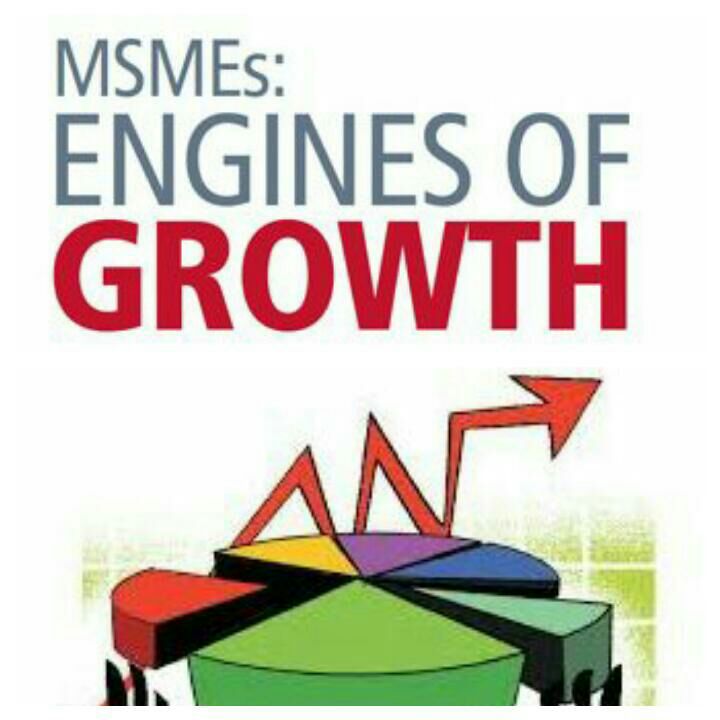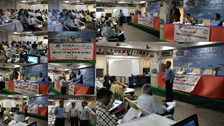CADASHBOARD – SEE A DASHBOARD FOR YOUR BUSINESS
Issue #111

Start collecting your TDS certificates now, deductors can't delay anymore.
Tax payers can start collecting their TDS certificates now as the last date for all deductors to finalise and issue these was over yesterday - May 31. This means that today - June 1, 2016, onwards all deductors of tax at source (e.g employers, banks etc) have to compulsorily provide you the TDS certificate when you ask them for the same else face a penalty.
Not just pals, taxmen also tracking FB for your foreign trip pics
Income-tax officials have found new ammunition with which to extract correct information from tax payers.
The ammunition in question are social media posts, such as photographs of an overseas vacation or a new car, which the taxpayer has shared among his friends, little knowing that the same could be used by taxmen. Surprisingly, it is I-T officials in non-metros who are increasingly vetting social media posts of taxpayers.
How much do you know about tax rules?
Apart from investment products and calculation of returns, investors should also be aware of tax rules. Surprisingly, only one out of three respondents knows that the interest received on fixed deposits and recurring deposits is fully taxable.

- Service Tax will be 15% from 1st June 2016, which includes additional Krushi Kalyan tax of 0.5%
- No TDS for provident fund withdrawals of up to Rs. 50,000 from 1st June.
- Pay 1% tax on cash buy goods, services up to Rs. 2 Lakhs
- Big industries are bound to buy the products/raw from MSME’s under the initiative of MSME sector development.
- Phone bills, eating out and banking transactions become costlier from next month
- Chartered Accountants, Merchant bankers to determine FMV in indirect transfers.
- The Income declaration scheme 2016 to open from 1st June 2016

International Section
Yes Bank plans to raise $1 billion in FY17
Private sector Yes Bank BSE 3.10 % is likely to raise USD 1 billion from overseas investors in the current fiscal as it has recently got government approval for increasing foreign investment to 74 per cent.
Brazil crisis: Economy spirals deeper into recession
Brazil's economy, the largest in Latin America, shrank 5.4% in the first quarter of this year, according to government figures released Wednesday. The news comes as Brazil is only 65 days away from hosting the Summer Olympics in Rio de Janeiro and the country is in the midst of immense political turmoil.
Just last month, President Dilma Rousseff was temporarily suspended by a congressional impeachment vote. Her vice president, Michel Temer, has taken over as interim president.
All you need to know about Arbitrage Funds
Is there any investment option which can mimic the risk-return profile of a Debt mutual fund and is also a tax efficient one like an Equity oriented Mutual Fund? Do we have such an investment avenue? Yes is the answer.
Arbitrage Funds have the risk-return profile which is similar to Debt funds and they are also tax efficient ones. An Arbitrage mutual fund is similar to say a Liquid Debt Fund in terms of Returns and is like an Equity fund with respect to Tax implications. It is generally a risk-free investment option.
In this post, let us understand – What is the meaning of Arbitrage? What are Arbitrage Funds? How do Arbitrage Mutual Funds work? What is the tax treatment of capital gains on Arbitrage Funds? Arbitrage Funds Vs Debt Funds.
What is Arbitrage?
Arbitrage is the practice of taking advantage of a price difference between two or more markets. This can be done by exploiting the differences in the price of a Financial Security or Asset or Product (goods) by simultaneously buying and selling it in different markets. It is a short-term trading opportunity.
Let’s understand the concept of Arbitrage with an example.
Mr. Saravana runs a decent hotel which serves only South Indian Tiffin Items. His hotel is very famous for Idlis. He sells Idli at Rs 10 per piece. The cost price of one Idli is Rs 7. So, he earns a net profit of Rs 3 (Rs 10- Rs 7) for each Idli sold. He is not happy with the quantum of net-profit. He wants to increase his profit margin without increasing the selling price.
One day, he tasted idlis in a near-by Bus stand canteen. The quality and taste of the Idlis are same. But the selling price of each Idli is Rs 5 only (whereas he is selling one Idly for Rs 10). So, he decides to buy Idlis from the canteen at Rs 5 and to sell at his hotel for Rs 10 each. In this scenario, he can make a profit of Rs 5 (Rs 10 – Rs 5).
What are Arbitrage Funds? How do Arbitrage Funds work?
The above practice of buying from one market and selling at a slightly higher price in a different market is called as ‘Arbitrage Opportunity’.
These kind of investment or trading opportunities exist in Financial Markets too. The financial securities like Stocks can be bought in CASH market and can be sold in DERIVATIVES market at a higher price.
For example – Share price of XYZ Company can be quoting at Rs 1,000 per share in NSE Cash market (National Stock Exchange) and Rs 1,010 per share in Futures & Options market for the next month. So, an investor or fund manager can buy shares of XYZ at Rs 1,000 and at the same time sells XYZ share in F&O at Rs 1,010. On settlement date (Expiry day), the investor can make a profit of Rs 10.
(A Futures contract is a contract to buy specific quantities of a commodity or financial instrument at a specified price with delivery set at a specified time in the future.)
To read more:
Source: http://www.relakhs.com/best-arbitrage-funds-returns/

Dcm Shriram Industries Ltd. Vs. Union Of India & Ors.(HC-Delhi)(25 May, 2016)
Held: The Petitioner was clearing PAA, made from captively consumed BeCN cleared by paying nil duty and further that PAA was also being cleared upon payment of nil duty. The fact that it asked the Petitioner to reverse the MODVAT credit on inputs purchased from outside and the Petitioner complied, belies the Department's case to the contrary. Secondly, a comparison of the two SCNs shows that the second SCN for the extended earlier period 1st March 1986 till 31st December 1989 is a virtual repeat of the first SCN dated 19th February 1991 except for one paragraph extracted hereinbefore. This merely sets out the language of the proviso to Section 11A(1) and makes no reference to material that was not already available with the Department when the first SCN was issued. the conditions for invoking the extended period of limitation in terms of the proviso to Section 11A(1) of the CE Act were not fulfilled and that the demand raised in respect of the BeCN used in the manufacture of PAA for the extended period of 1st March 1986 till 31st December 1989 was barred by limitation. Appeals allowed.
Judgements/Tribunals
Content right to : eJurix

DCIT Vs. M/s. Reliance Life Insurance Co. Ltd.(ITAT-Mumbai)(25 May, 2016)
Held: The assesse engaged in the life insurance business needs various types of services such as storage of data, scanning and sorting of documents, processing charges, call centre operations and business services besides other basic works connected and incidental therewith which were outsourced by the assesse to outside agencies on contractual basis. The assesse made the payment for these services after deducting TDS under the provisions of section 194C of the Act believing these are basic type of services involving no technical or professional qualification whereas the AO came to the conclusion that these are technical services and were required to be subjected to TDS under the provisions of section194J of the Act and finally treated the assesse in default under the provisions of section 201(1) of the Act and raised the demand accordingly. The ld CIT(A) examined the contract with Writer Information Management Services and found that very basic services were contracted and rendered by the said party involving no special technical skill or professional qualification. AO treated the assesse as "an assesse in default' within the provisions of section 201 for not deducting TDS u/s 194J of the Act in respect of event management expenses and worked out the default. Appeals dismissed.

M/s. IDS Infotech Ltd. Vs. The D.C.I.T., Chandigarh. (ITAT-Chandigarh)(24 May, 2016)
Held: The income is taxable in India only if that foreign entity carries on business in India through a permanent establishment situated in India. No such finding with regard to existence of any permanent establishment in India has been brought on record by any of the lower authorities or even by the learned D. R. at the time of hearing before court. In view of this, the position emerges that the payment to a person who happens to be a resident of country with whom India has entered into DTAA and where the business profits are taxed only in the country and does not have a permanent establishment in India, the assesse is not required to deduct tax at source. Therefore, the provisions of section 40(a)(i) of the Act cannot be invoked. The provisions of tax deduction at source are not applicable to the impugned payments as the amounts received by the recipients are not in the nature of income deemed to accrue or arise in India in their hands. The services rendered by the non-residents are not in the nature of technical services, no income deemed to have accrued to the non-resident entities, there is no liability on the assesse to deduct tax at source on such payment. Therefore, the provisions of section 40(a)(i) of the Act are not exigible in the present case. Appeal partly allowed.
Blog

A RAY OF HOPE REACHES THE SMALL SCALE ENTERPRISES.
Scarcity of capital, shortage of resources, delayed payments, technological obsolesce, increasing competition and harsh clean-up of loans are leaving the small scale entrepreneurs at cross roads. It is high time that they reinvent their methods and appropriately utilize the opportunities available, in order to compete in the arena of Indian market.
Let us first look into some practical issues that are confronted by many entrepreneurs in running their respective businesses. This article is an attempt to address the major concerns and learn how to turn around the situation to one’s favor.
Today, India is on the threshold of a new economic revolution. Connectivity and access to resources have become an easy affair. Fortunately, the different schemes taken by the Government of India are far encouraging to the start-ups and MSME (micro, small and medium enterprises) sector. One must positively plunge into these new pathways to find solutions that are smart and sustainable for the projects. To reap benefits from the various incentives provided under MSMED (Micro, Small and Medium
Enterprises Development Act, 2006) primarily one needs to identify the status and type of the enterprise.
The next step after determining the category is to register as a SSI unit under MSMED. Enterprises avail immense benefits, incentives and support rendered either by the Central or the respective State Government.
1. How to register under MSMED? Can a private limited company or a proprietary concern or a service oriented entity, or a partnership firm be enrolled as a SSI unit?
Positively, all the following entities are eligible to get registered:
• Proprietorship
• Hindu undivided family
• Association of persons
• Co-operative society
• Partnership firm
• Limited liability partnership firm
• Company or an Undertaking.
Any entity pertaining to manufacture or service sector can apply for the registration and get qualified to receive benefits provided under the Act. To Read More please visit
https://www.cadashboard.com/blogs/a_ray_of_hope_reaches_the_small_scale_enterprise


We are reaching out !!!
Mr. Satish Bora- Founder & Director @Orgpro Softwares Private Limited addressing the ICSI-Hyderabad Chapter delivering
A seminar on “Modern Company Secretory in the Tech World”

The young man from Mississippi comes running into the store and says to his buddy, 'Bubba, somebody just stole your pickup truck from the parking lot!'
Bubba replies, 'Did you see who it was?' The young man answers, 'I couldn't tell, but I got his license number.'
